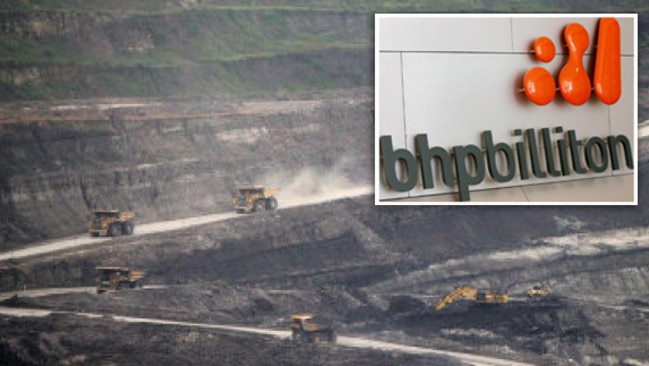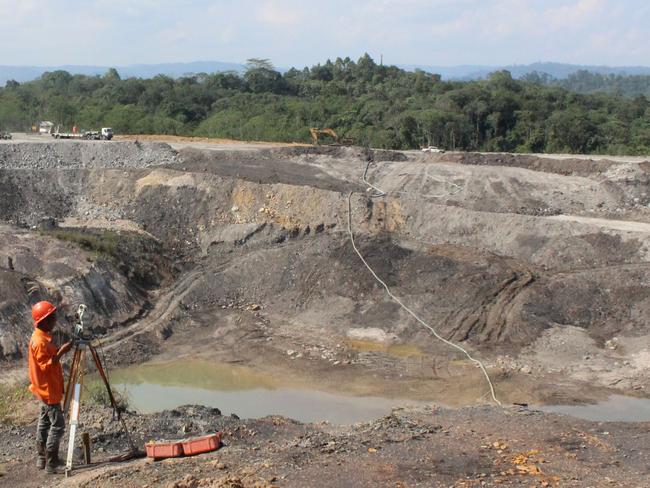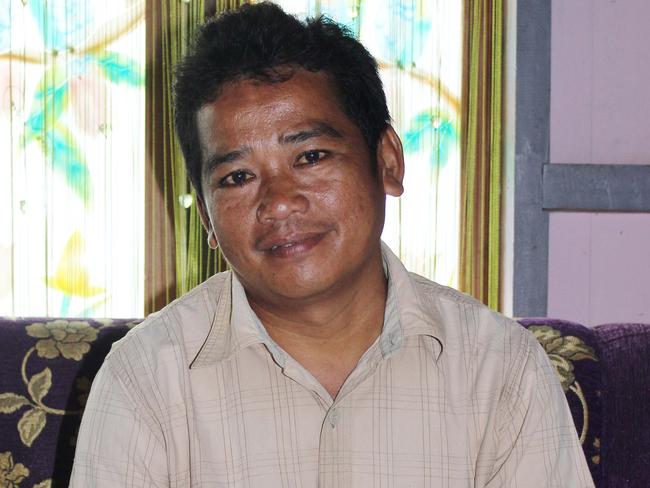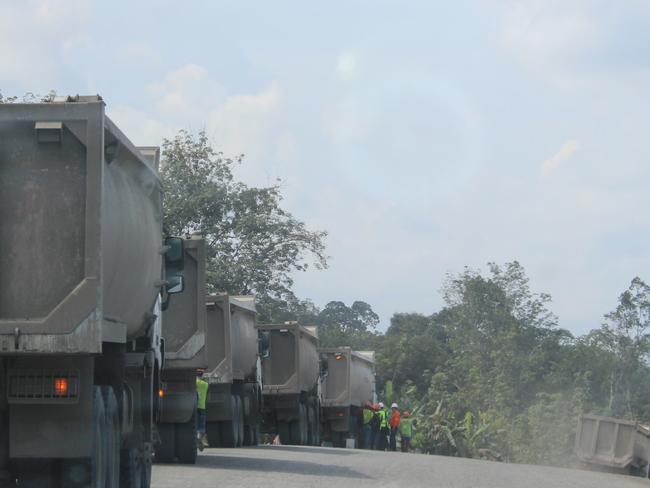Indigenous Dayaks in a remote Borneo village fight BHP coal mine
AUSTRALIA’s biggest mining company, BHP Billiton, is in a perilous fight with angry locals over one of its most prominent projects.

AUSTRALIAN mining giant BHP Billiton has hit a roadblock on its coal mine in Indonesian Borneo after finally starting operations.
The company begun mobilising the Haju mine, the first stage in its massive 350,000ha IndoMet project, after being delayed by the global financial crisis.
But the indigenous Dayak people of the nearby village of Maruwai, in the remote north Central Kalimantan, have launched a legal claim that aims to lock BHP out of 1000ha of land within the project area.
While the land is in an area designated as state forest, the villagers claim that the government should never have granted the company permission to mine its traditional lands.
“The loss of land has impacted people’s livelihoods pretty considerably,” said journalist Jenny Denton, who visited Maruwai last year and interviewed the villagers with the help of a translator.
“They were kind of hoodwinked into clearing this area of land, because they thought they’d get a good price for it. But the price turned out to be negligible — less than half a cent per square metre. The authorities were called in, and they accepted, thinking they’d be arrested if they refused.”
Now the villagers have lodged a claim under new laws that are similar to native title legislation in Australia, an action understood to be politically unlikely to succeed, but aimed at drawing attention to their plight.

The Dayaks’ ability to hunt and cultivate rice, rubber and crops has already been impacted by two existing mines located just 15km from their village, with forest clearing and river pollution taking their toll on the land that had sustained their livelihood for generations.
Maruwai’s 700 inhabitants appeared to be evenly split over whether mining should be supported, Ms Denton said, but those who opposed it were fired up.
Village head Suwanto boldly spoke of a “race against BHP to claim this land under the Dayak Misik scheme”, but many of the villagers just wanted a better deal.
“We welcome mining as long as they respect our way of life, our livelihood, our customary land. When they don’t, we’ll fight to the end,” Suwanto told The Jakarta Globe.
“It’s not as though people want to live in the bush in the ways they have for millennia,” Ms Denton said. “They appreciate roads and jobs that come with mining. But they’re not getting good prices for the land.”

Friends of the Earth Indonesia (WALHI) executive director Aries Rompas told news.com.au the villagers were unable to take up jobs with BHP because of minimum education requirements, with recruiters asking for a high school certificate — which “very few” of the Dayaks had.
WALHI is helping with the villagers’ legal case by mapping the area of land they claim as their “traditional territories” under a new Central Kalimantan government customary land rights scheme.
The IndoMet project has also fired up environmental activists, who claim it threatens biodiversity in the Heart of Borneo region, which the Asian Development Bank has called “the lungs of the earth”.
While the region does not have protected status, the nations that share it — Indonesia, Brunei and Malaysia — have pledged to safeguard it from deforestation and degradation from industrial agriculture, logging and mining.
The London Mining Network, a regular visitor to BHP’s annual general meetings, recently delivered a petition of 9000 signatures calling on the company to “withdraw from IndoMet immediately and seek permanent protection for the area”, labelling the project a “disaster in the making”.
“In a world where coal supply is outstripping demand, there is simply no justification for developing the IndoMet project,” said Global Justice Now campaigner Alex Scrivener.
The IndoMet project, a joint venture with Indonesian mining company Adaro Energy, could eventually produce five million tonnes of coal a year.
But some commentators have questioned whether the company intends to push on with the project, reasoning that it may be hanging onto its leases simply to avoid the PR fallout of a less responsible operator taking over.
A BHP spokeswoman said the company had approached the project “in a cautious manner” while adhering to “world class environmental and governance standards and practices”, and had engaged an experienced Indonesian contract miner, PAMA, to operate the Haju mine.
“We have maintained respectful and committed engagement with local communities,” the spokeswoman said.
“IndoMet’s arrangements with local villagers relating to land for the project were finalised more than nine years ago. These processes were at all times undertaken in accordance with legal and ethical business practices.”
She added that ”goodwill” payments made to the villagers were based on government guidelines, with land acquisition “undertaken transparently and based on consensus decision making” by landowners.

The spokeswoman said BHP was not legally required to compensate the villagers, but did so after a community consultation conducted in line with its corporate governance standards.
“Separately, IndoMet has worked with representatives of the Maruwai Village on a range of community development initiatives including installing water infrastructure to bring clean running water to the village for the first time,” she said.
“IndoMet has also invested in a range of other health and education initiatives for the village and will continue to work closely with communities into the future.”
The statement said that none of BHP’s mining leases crossed over “protection forests”, and most of them overlapped with land licensed for logging by the government.
“We are also very proud to have been able to assist in the release of over 260 rehabilitated orang-utans from captivity to the wild,” the spokeswoman continued.
“We fully recognise and understand the critical biodiversity values of the area and feel we can play a positive leadership role in this work through partnering with organisations like the Borneo Orang-Utan Survival Foundation.”



